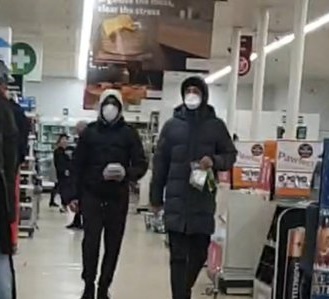
Ten people in Brighton and Hove have been diagnosed with coronavirus since the virus also known as covid-19, came to the UK. At least seven of those people have made a full recovery.
So far, the government has not asked any schools or public places to close – but scores of events are being postponed or cancelled and both universities have said they are suspending lessons and moving to online learning.
The Prime Minister Boris Johnson said on Monday (16 March): “Avoid pubs, clubs, theatres and other such social venues.”
He urged people to work from home and said: “Now is the time for everyone to stop non-essential contact with others and to stop all unnecessary travel.”
The Brighton Marathon is one of a number of events to have been affected. It has been postponed until September. Brighton and Hove Albion postponed the club’s home match against Arsenal on Saturday (14 March) after the visitors’ head coach Mikel Arteta was found to have coronavirus and, along with the entire first-team squad, went into self-isolation. The Premier League subsequently postponed the entire weekend fixture list.
Scores of people were told to self-isolate by Public Health England after coming into contact with the initial cluster of people who were confirmed as having coronavirus.
In March, when the UK moved from the “contain” phase to the “delay” phase of the government’s strategy, the advice changed so that anyone with a new continuous cough or a high temperature was asked to self-isolate – along with members of their household who had previously been told to carry on as normal.
Only patients with severe symptoms in hospital are now being tested.
The cases diagnosed in Brighton and Hove are:
-
- Steve Walsh, who has since made a full recovery and has left hospital
- Dr Catriona Greenwood, who occasional works at Warmdene Surgery in Hollingbury
- One male healthcare worker
- Two other unnamed men
- Two people connected with the University of Sussex who were diagnosed in March
- One patient at the Royal Sussex County Hospital who was diagnosed on Sunday 8 March
- Two more people whose cases were announced
The first five patients – all now recovered – were connected with an outbreak which started in France, when Hove father Steve Walsh, 53, met friends for a skiing holiday.
He had just returned from a conference in Singapore where he unknowingly contracted the bug.
He travelled to France on Friday 24 January and returned to Hove on Tuesday 28 January, where he went about his day-to-day business without realising there had been coronavirus in Singapore.
When he discovered this, he went for testing at the Royal Sussex, then returned home and self-isolated. His diagnosis was confirmed on Thursday 6 February.
As well as the four people in Brighton and Hove whose diagnosis was confirmed on Monday 10 February, he also inadvertently passed it on to seven others.
On Thursday 12 February the NHS said everyone who had come into close and sustained contact with the five confirmed Brighton and Hove cases had been traced and told to self-isolate as a precaution.
They included about a dozen medics, including one who had worked at Worthing A&E and a handful of staff and students from nine local schools.
On Thursday 27 February, Public Health England said that they had all been given the all-clear.
On Thursday 5 March, Sussex University said that someone “associated with the university” had been diagnosed. However, they had not been to Brighton since returning from abroad, where they were thought to have picked up the virus. By Friday 13 March, they had recovered.
A second case at Sussex University was announced on Monday 9 March, with the patient self-isolating off campus. By Friday 13 March they were recovering and their flatmates tested negative.
Meanwhile, a patient at the Royal Sussex had coronavirus diagnosed on Sunday 8 March while being treated for a different condition.
A further two confirmed cases in Brighton and Hove have been announced as part of the government’s daily updates, on Friday 13 March and Sunday 15 March.
By Friday 6 March, large supermarkets in the city had empty shelves following panic buying of sanitiser, soap, pasta, rice and toilet roll.








